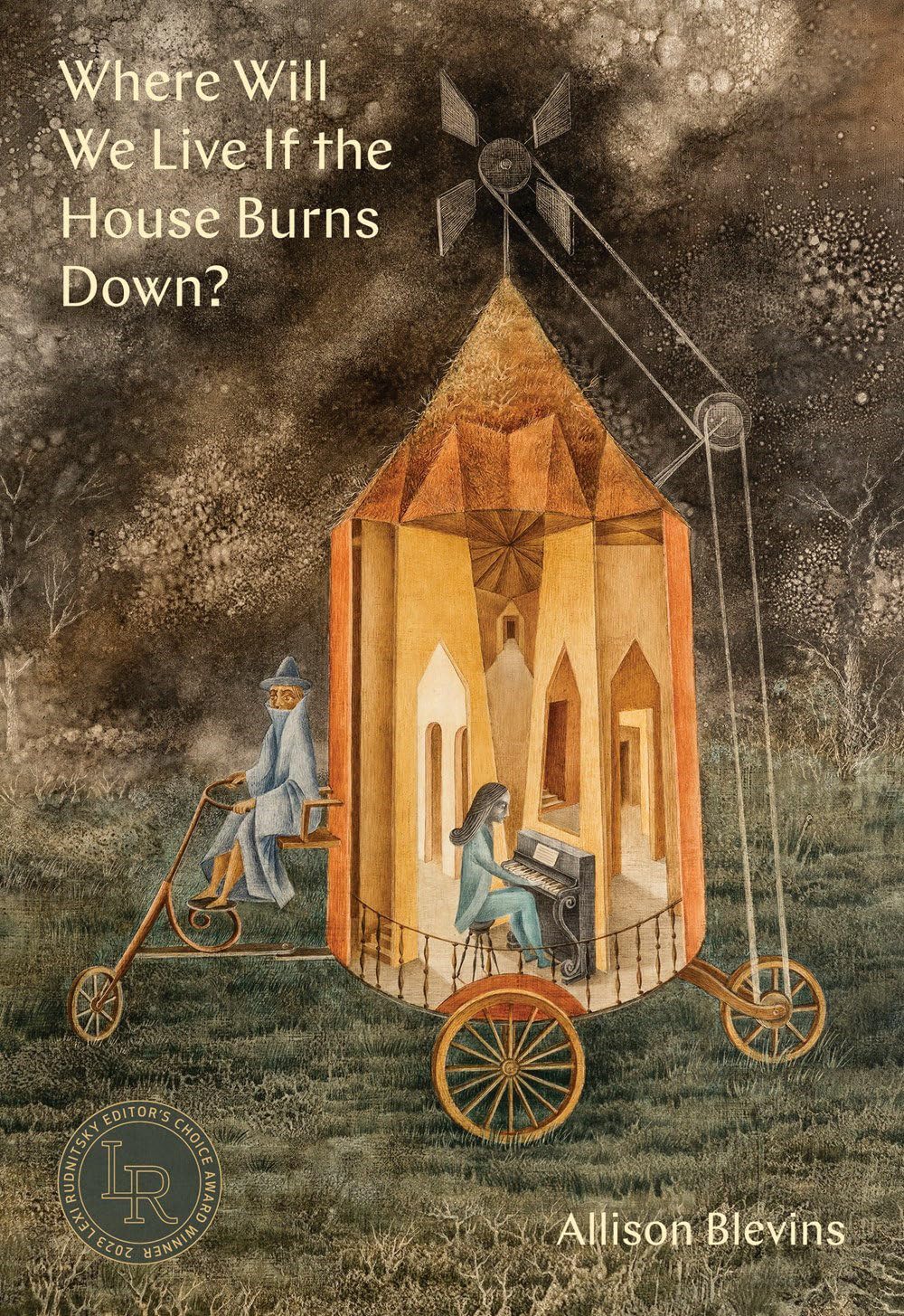Review of Where Will We Live If the House Burns Down? by Allison Blevins

Where Will We Live If the House Burns Down?
Allison Blevins
Persea Books, 2024, 70 pages
$17.00
Reviewed by Pelaya Arapakis
Allison Blevins’s award-winning book Where Will We Live If the House Burns Down? is a lyrical meditation on the effects of chronic illness, disability, and a spouse’s gender transition as experienced through the prism of a marriage. Following the daily lives of its central characters—Grim and Sergeant—Where Will We Live If the House Burns Down? contemplates what it means to exist in a body among other bodies. Blevins’s hybrid narrative-in-vignettes defies conformity to a single genre, pushing and pulling between fragmented prose-poetry, fairytale, and auto-fiction, guiding us through difficult and deeply layered emotional terrains that are profound and heart-wrenching.
Masks figure prominently in Blevins’s work as a device to explore the multiplicity of identity. This thematic concern is first implied in the very epigraph of the text: “Under this mask another mask. I will never finish removing all these faces” (Claude Cahun). Soon after, we are introduced to Grim and Sergeant—personae of Blevins and her partner, respectively—as they navigate the world in bodies and identities that are in various states of flux. However, change is often accompanied by grief, and we bear witness to Grim, who mourns for the person she once was, the person she was before her illness, before “every moment [was] an accounting of pain” (61). Throughout this process, it becomes clear that identity is neither static nor singular, that “Grim is a character played by the woman she once was” (38). Here, identity is itself a mask—but not necessarily one that, when removed, unveils a definitive truth, but is instead a perpetual unfurling.
Throughout the narrative, Grim’s body is often rendered as a site of pain. Daily tasks become gruelling, “Grim tells the doctor, I want to stand long enough to make grilled cheese, want to walk the dark living room at night to check the children are breathing” (18). Still, Blevins speaks to the grounding force of the body. While “Grim often finds herself lost. . . Her body remains,” with its needs, desires, its state of simply being, binding her—binding us— to others: “we are not held together but bound to each other” (10). Grim is reminded of this visceral nature of embodiment in a medical waiting room, of “how we all do this strange moving together as marionettes. Like smelling armpits or ear wax or maybe dead skin squeezed from a tight black pore. Like remembering the weight of a past lover on your body. Like breaking apart or sewing together” (7). Yet, sometimes our needs conflict with those of people around us, and it is this very tension that Blevins captures with incredible nuance and poignancy. In a quarrel with the Sergeant, Grim asks what he needs, to which he responds, “I need you to need less from me” (41). Just as pain might course through Grim’s body, the quiet fracture of this confession reverberates throughout these pages.
Swirling between genres, Blevins weaves a gripping portrait of a marriage that is as devastating as it is tender. As the title suggests, Where Will We Live If the House Burns Down? reminds us that embodiment is shared, messy, and ineluctable, and that our bodies—with all the joys, aches, and complexities they bring—are our ultimate homes, even as they collapse around us.
Pelaya Arapakis (she/her) is a musician, arts worker, and freelance writer based in Naarm/Melbourne.
"Empowerment comes from ideas."
― Charlene Carruthers
"Your silence will not protect you."
— Tourmaline
"Gender is the poetry each of us makes out of the language we are taught."
— Leila Raven


